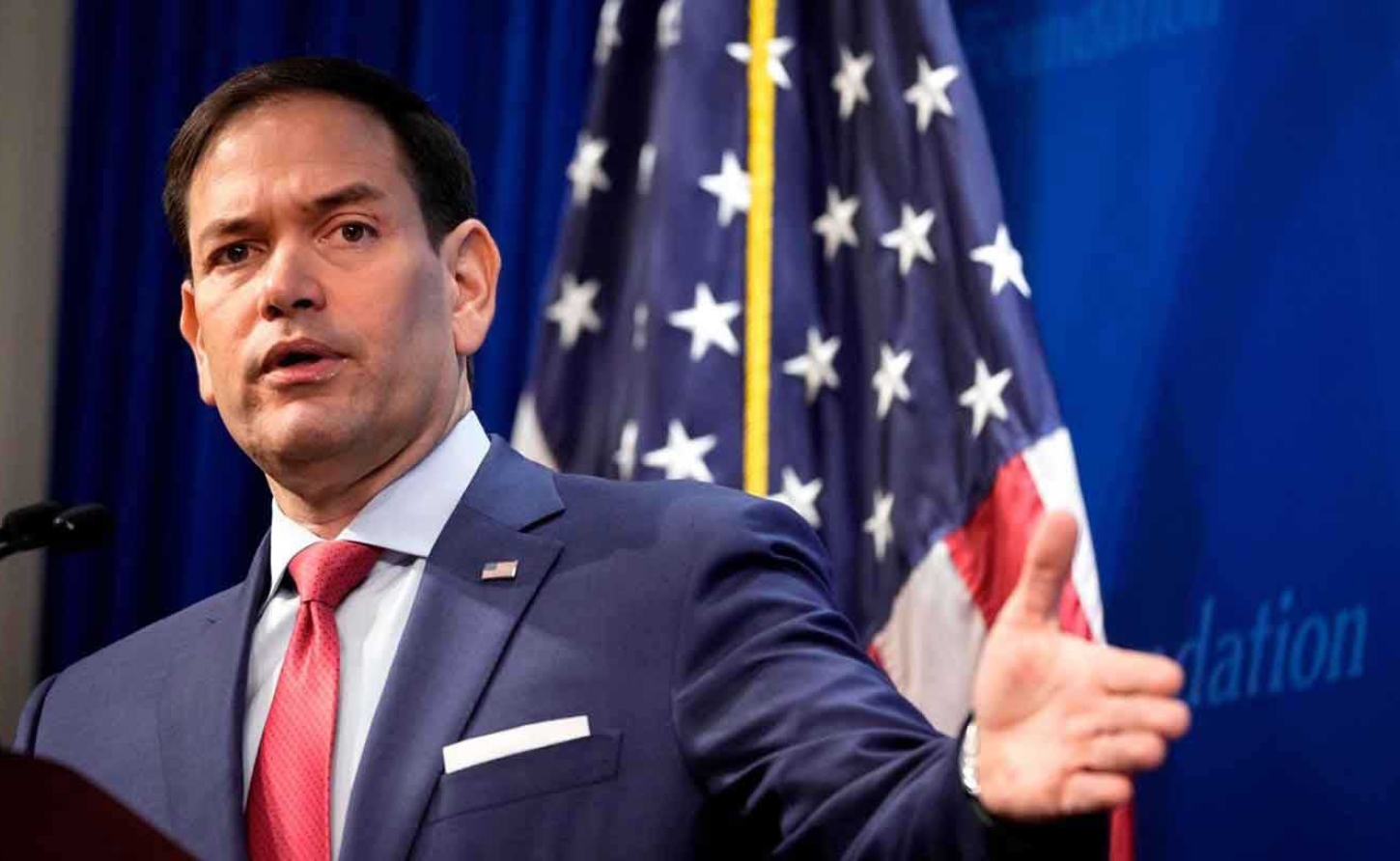UNITED STATES | Rubio's Diplomatic Double Standard: The Venezuela Exception

MONTEGO BAY, JULY 18, 2025 - Marco Rubio has a Venezuela problem. For months throughout 2024, the now-Secretary of State issued blistering statements about Venezuelan elections, declaring Nicolás Maduro a "narco-dictator," recognizing Edmundo González as the "rightful President-elect," and even making direct video appeals to Venezuelan military forces not to "kill hundreds of innocent compatriots."
Yet on July 17, 2025, this same official instructed U.S. diplomats worldwide to avoid commenting on the "fairness or integrity" of foreign elections—a directive that would have silenced his own extensive Venezuela commentary.
This isn't just bureaucratic housekeeping; it's the formal codification of America's most cynical foreign policy doctrine yet: democracy promotion only when convenient, sovereignty only when strategically useful.
The Directive Dissected
Rubio's internal State Department cable, marked "sensitive" but leaked to Reuters, represents a stunning reversal of decades of American electoral diplomacy. U.S. diplomats can now only offer brief congratulations to winning candidates and note "shared foreign policy interests"—language so sterile it could have been drafted in Beijing.
The directive explicitly bars commentary on electoral legitimacy or democratic values, unless there's a "clear and compelling" foreign policy interest.
The cable draws directly from Trump's May 2025 Riyadh speech criticizing "Western interventionists" for telling Middle Eastern countries how to govern. Yet even as Rubio champions non-interference as sacred principle, his own Venezuela statements throughout 2024 violated every guideline he now mandates.
His July 26, 2024 declaration that "the tenacity and courage of the Venezuelan people will be on full display" hardly qualifies as brief congratulations. His August recognition of González as president-elect directly contradicted official Venezuelan results—exactly the kind of electoral commentary now forbidden.
Caribbean in the Crosshairs: A History of Selective Intervention
For Caribbean nations, this directive must feel like historical whiplash. These are the same islands where America intervened in Grenada in 1983, ostensibly to "restore democracy." The same region where Washington spent Cold War decades monitoring elections with forensic precision, issuing stern statements about electoral integrity, and conditioning aid on democratic compliance.
Jamaica's violent 1980 elections, Haiti's tumultuous democratic transitions, Guyana's contested 2020 vote—all received the full weight of American electoral commentary. The double standard was always glaring: America's allies rarely faced harsh election criticism, while adversaries endured microscopic scrutiny.
But the Venezuela case exposes something more insidious—the same official demanding diplomatic silence on foreign elections spent 2024 explicitly questioning Venezuelan electoral legitimacy.
The pattern is clear: Jamaica's violent 1980 elections, Haiti's tumultuous democratic transitions, Venezuela's contested votes, and Guyana's 2020 crisis—all received intensive American electoral intervention.
Yet Rubio, who spent 2024 denouncing Venezuelan elections and whose State Department spent 2020 sanctioning Guyanese officials over electoral disputes, now instructs diplomats to avoid such commentary entirely.
The hypocrisy is staggering. The same U.S. officials who threatened Guyana with isolation, imposed visa restrictions on government ministers, and declared potential governments illegitimate now preach non-interference.
If Kozak's 2020 pressure campaign against Guyana represented acceptable diplomatic practice, why forbid similar commentary elsewhere? The answer exposes American democracy promotion as purely transactional.
Policy Implications: The Dangerous Vacuum
This retreat creates a dangerous vacuum precisely when Caribbean democracy faces new pressures. Guyana's upcoming elections will test a young democracy still scarred by electoral crisis. Jamaica's next electoral cycle occurs amid rising global authoritarianism.
Without consistent American commentary—however hypocritical—regional strongmen may feel emboldened to push democratic boundaries.
Both the Venezuelan and Guyanese cases reveal the directive's true purpose: not principled non-interference, but strategic silence that serves immediate political interests. Venezuela warranted extensive commentary because opposing Maduro aligns with U.S. strategic goals.
Guyana's APNU+AFC faced sanctions because their percieved electoral manipulation threatened a PPP/C government friendlier to American oil interests. But other nations will now receive the "sovereignty" treatment.
More concerning is what fills the void. China's Belt and Road Initiative already offers infrastructure investment without democratic conditionality. Russia's influence operations come with no lectures about electoral integrity.
As America steps back from consistent democracy promotion, these powers advance their own governance models—ones prioritizing stability over accountability, sovereignty over human rights.
The directive also threatens democracy assistance programs that, despite their flaws, provided crucial support to Caribbean civil society organizations and election monitoring groups. If election integrity is no longer America's business—except when it involves adversaries like Venezuela—will funding for these programs survive budget reviews?
The Contradiction Exposed
Perhaps most revealing is how Rubio's directive contradicts recent U.S. practice across the Caribbean. While instructing diplomats to avoid electoral commentary, the same State Department apparatus that sanctioned Guyanese officials in 2020 continues recognizing González as Venezuela's legitimate president.
The administration that champions "national sovereignty" routinely weighs in on European politics, denouncing alleged suppression of right-wing leaders.
The Guyana-Venezuela double standard demolishes any pretense of principled policy. Michael Kozak's 2020 statements threatening sanctions against Guyanese officials, summoning ambassadors, and declaring governments illegitimate represent everything Rubio's directive now prohibits.
Yet Rubio's 2024 statements on Venezuela—declaring elections illegitimate, recognizing opposition victory, appealing to military forces—continue because they serve U.S. strategic interests.
The End of Democratic Pretense
Rubio's directive marks more than policy shift—it's the formal abandonment of America's moral leadership pretensions. The Venezuela exception proves this isn't about respecting sovereignty but about wielding democracy promotion as a selective weapon.
Elections are illegitimate when conducted by adversaries, legitimate when conducted by allies, and irrelevant when conducted by strategic partners.
For Caribbean nations that endured decades of American electoral interference, there may be relief in this retreat from democratic evangelism. But as America steps back from consistent democracy promotion—while maintaining the right to intervene where convenient—the hemisphere faces a more dangerous reality: superpower hypocrisy without even the facade of principled consistency.
The silence may be deafening, but the Venezuelan exception speaks volumes about America's true priorities. Democracy promotion was never about principle—it was always about power. Rubio's directive simply makes it official.
-30-
